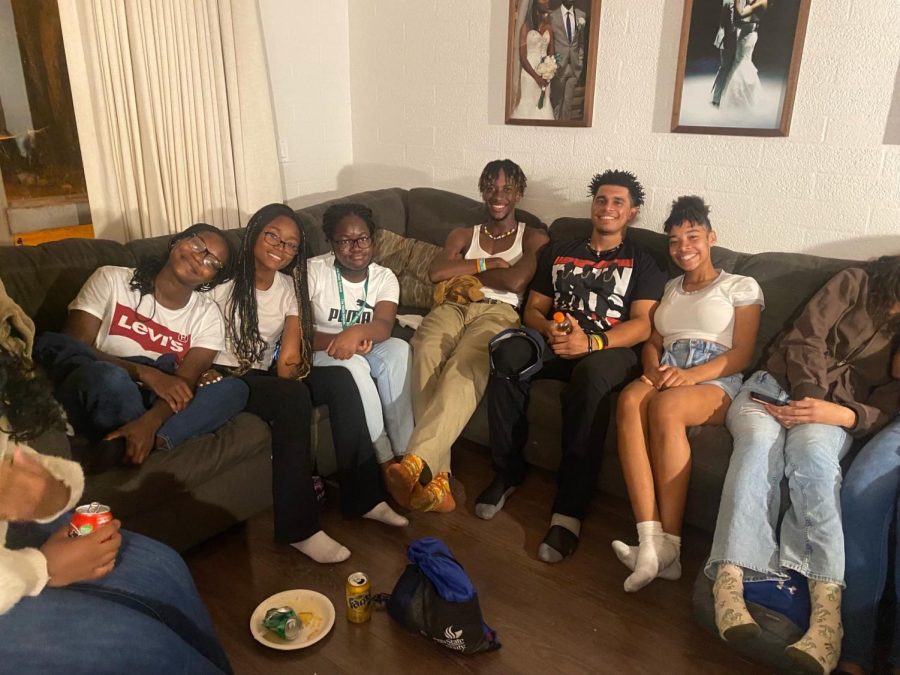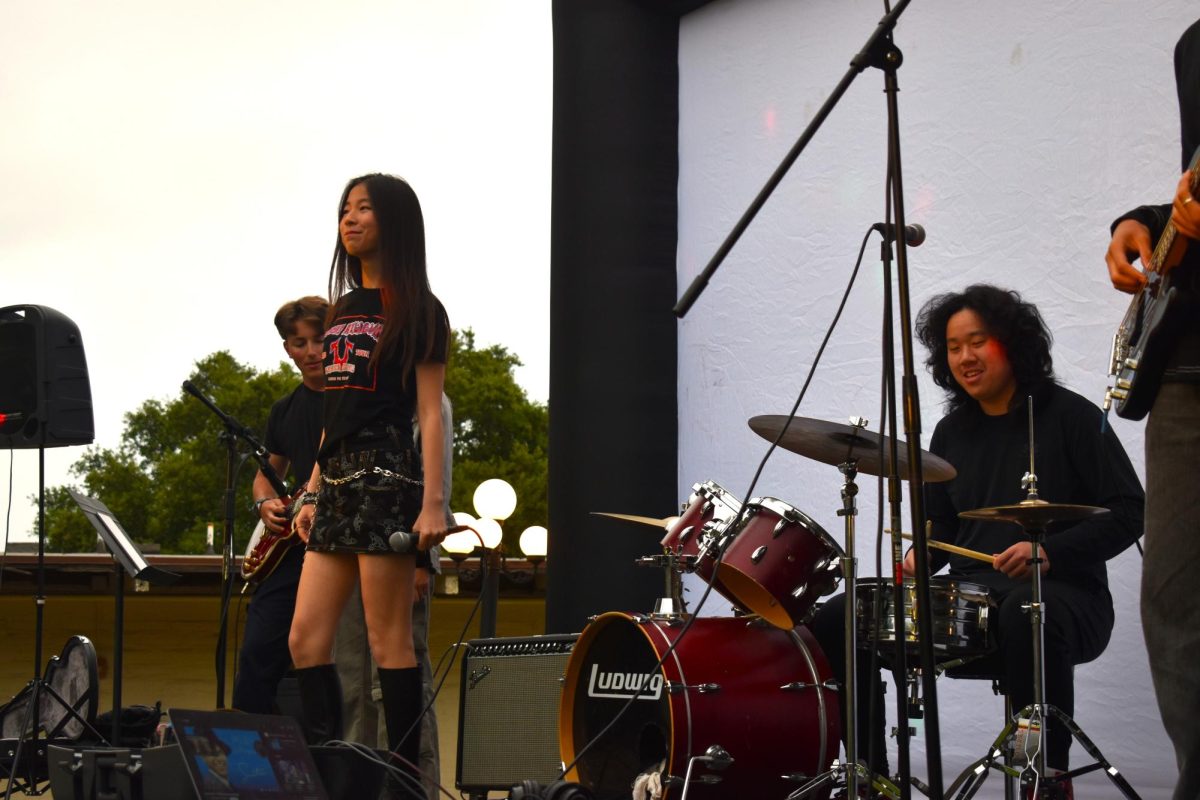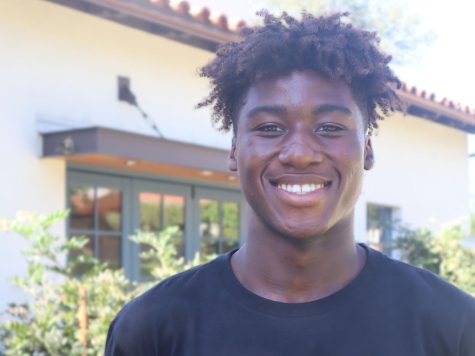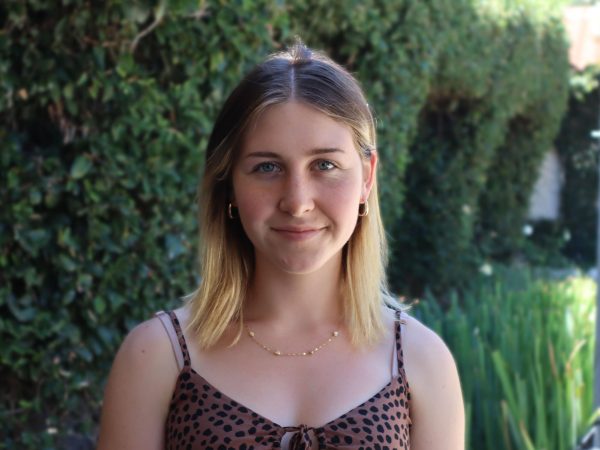Having a diverse and closely-knit community that includes students and faculty from all different places and backgrounds, it makes sense that Webb has various affinity spaces for people of different identities.
“I like the GSA (Gender Sexuality Alliance) affinity space because you can connect with people with shared experiences and bond over them, and it’s a great way to make friends,” said Rowan Stamires (‘26).
Affinity spaces allow students who may share a common interest, identity, or religion to gather and talk in a safe space about issues related to their shared trait. A group of students who share a specific part of their identity may be able to relate to each other in ways that are not achievable with people who don’t understand their experiences.
After the pandemic, many affinity spaces began to emerge in the Webb community due to isolation, the Black Lives Matter movement, racial injustice, and many other factors.
The goal for these affinity spaces is to use information and ideas from student-lead discussions and turn them into proactive change, thus creating a more equitable experience at school.
Students in the community should have confidence in their identities, which isn’t always the case for some. Schools, such as Webb, can sometimes be an extra space where students outside the dominant culture, international or not, can often feel disregarded.
“I don’t feel safe fully expressing my identity because I don’t think the community would accept me if I did,” said Aeden.
For some students, trying to navigate and learn in certain spaces can make school life stressful. For example, students of color may be dealing with racial stress, anxiety, or fear that stems from negative encounters with individuals who are unaware or uncaring about certain topics.
Stress like this contributes to students feeling alone and overlooked at school.
“I also feel like my culture is generalized under ‘black’, which simply isn’t true, as there’s various African cultures,” said Aeden.
As of now, Webb offers a myriad of affinity spaces to students who identify with a certain minority group and seek support from others going through similar experiences. These include BIPOC, Black, Asian, Latinx, and mixed-race affinity spaces as well as the Gender Sexuality Alliance Affinity (GSA). For each affinity space, there is a leading advisor as well as student leaders who host the meetings.
Here are some affinity spaces on campus that students are able to join.
BIPOC Boarder Affinity
Faculty Advisor(s): Malick Mbengue, World Language Teacher, and Ardina Greco, Art Teacher
Meeting: The affinity meets once a month. The locations of the meetings will be sent via email by either Dr. Greco or Mr. Mbengue.
What is the BIPOC Boarder Affinity?
“The BIPOC residential affinity group provides a safe and welcoming space for boarders who identify as students color to share experiences, stories, struggles that are associated with being a boarder,” said Mr. Mbengue.
Who can join the BIPOC Boarder Affinity?
“Anyone who identifies as BIPOC and is a boarder can join,” Mr. Mbengue said. “Young students can receive useful advice from upperclassmen about things specific to boarding.”
Is the BIPOC Boarder Affinity a safe space?
“All affinity spaces are safe spaces and this one is no different,” Mr. Mbengue said. “We encourage students to be vulnerable and honest, and we respect everyone’s confidentiality.”
Black Affinity
Faculty Advisor(s): Mr. Flucker
Meeting: The affinity meets every Friday via email or WeChat by Reece Ollivierre (‘23) or Karma Griggs (‘23).
What is the Black Affinity?
The Black Affinity is a place where students who identify as black or share an affinity with Black culture meet and discuss various topics such as racism, mistreatment to how to properly comb out hair.
“The Black Affinity embodies every Black, Indigenous, Person of color,” Karma said.
Who can join the Black Affinity?
“If you identify as a person of color, you share this affinity,” said Karma.
Is the Black Affinity a safe space?
“Everything in the affinity spaces is confidential so that makes it even more enjoyable because you should be able to trust those around you,” Karma said.
Gender Sexuality Alliance
Faculty Advisor: Melanie Bauman, Director of Wellness
Meet: The GSA meets several times a month. The locations are posted via email.
What is the GSA?
The GSA is interconnected with the GSA club. It is the affinity space is for anyone in the Webb community who identifies as LBGTQ+.
Who can join the GSA?
People identifying as LGBTQ+, but not allies (they can join the GSA club).
“People want to be involved in club activities, but there is also a group of students within that that want and need an affinity space; GSA serves those two purposes,” said Ms. Bauman.
Is the GSA a safe space?
Yes; the GSA serves as a space for students to have a conversation with their peers who identify a similar way in terms of gender and/or sexuality, and consequently face similar challenges.
“People just need a calm space to sit and process and be, but [also] need some structure to the conversation to make sure they aren’t dumping onto everyone,” Ms. Bauman said.
Mixed-Race Affinity
Faculty Advisor: Dr. Greco
Meet: The Mixed-Race affinity’s meeting locations are posted via email.
What is the Mixed-Race Affinity?
“The Mixed-Race Affinity offers meeting space for students who identify as multiracial or come from families of more than one race or ethnicity,” said Dr. Greco. “Even if the group is formed of students from different backgrounds, students who identify as multiracial often find affinity in everyday experiences related to assimilation, loss of language and culture, conflicting cultural values and expectations, feeling out of place in other affinity spaces, and much more.”
Who can join the Mixed-Race Affinity?
“I believe it is essential for students of multiracial backgrounds to acknowledge and celebrate their complete ethnic identity,” said Dr. Greco. “Doing so prevents the minimalization of certain aspects of their identity and allows them to show pride in connecting to cultures of color. Mixed-race people make up a significant amount of the population in the United States and on our school campus, yet it is often expected that if you pass as white, you should identify as white.”
Is the Mixed-Race Affinity a safe space?
Yes, everything discussed in the affinity space is confidential.
Asian Affinity
Faculty Advisor: John Choi, Director of Equity and Inclusion
Meet: The locations for the Asian Affinity are posted via email.
What is the Asian Affinity?
“An affinity to talk about identity and challenges that we face,” said Yvette. “We also talk about fun things such as our favorite Asian foods!” Yvette said.
Who can join the Asian Affinity?
“People who identify as Asian or have affinity towards Asian to discuss issues pertaining to their identity,” Yvette said.
Is the affinity a safe space and confidential?
“It’s confidential when it comes to individual experiences, but not when it comes to general trends,” said Yvette. “For example, how we often talk about how we want more cultural community dinners. No one can demand from outside of the group that we share information discussed from the group. It’s all about permission.”
If you are interested in joining an affinity group, the process is very easy. Students looking to join one or more of the affinity spaces at Webb can reach out to the advisor or student leaders of the affinity.
Affinity groups on campus are not attempting to exclude members of the Webb Community, as affinity spaces give students the opportunity to explore their identities in ways that provide confidence and pride.










